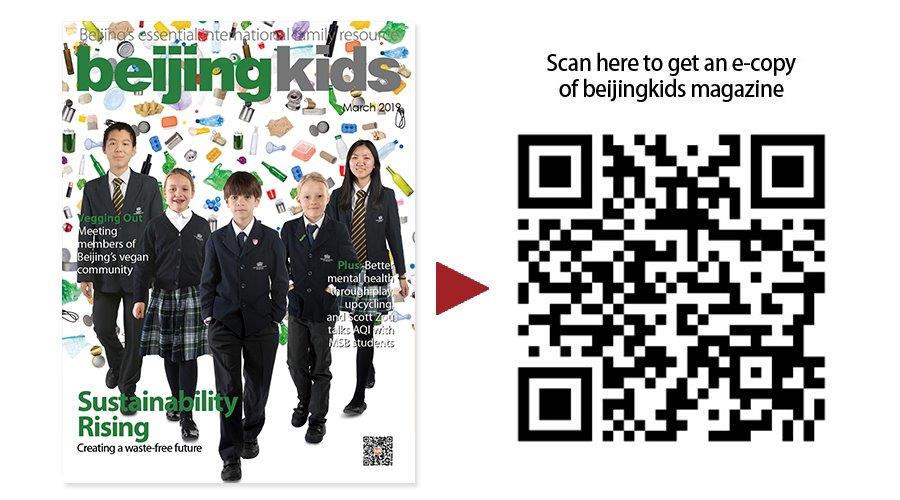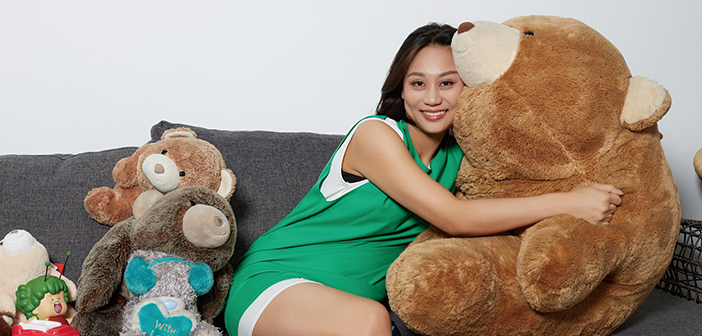Childhood education Is more than just signing up for classes or taking kids to playgrounds. It’s the mindset of the adults that matters the most.
“Have you done your homework yet?!”
I was stunned. I heard this phrase so many times as I grew up in Hong Kong. I hear this phrase often these days from parents and their young kids on the way home in the subway and on the streets. But I did not expect to hear it here.
“Here” was in a classroom in the south of Beijing. I was a participant with 50 other adults. The teacher gave us some finger puppets to role play. I picked up a cheeky-looking one that resembled a child, and the other three people in the group picked up the remaining characters of the family. I enacted the child, and bounced around. Finger puppet Mama came on stage, and the first improvised line was: “Have you done your homework yet?”
I almost cried. I was sitting in a classroom with 50+ child and family therapists and counselors. It was a course on play therapy. And the first thing that the “mother” can think of is homework for the kid! To hear this from those who are meant to be the ones supporting the children in this country to play more, to work through traumas, and process challenges at school and in families, alarmed me to how deep-rooted mindsets are in this culture and society. It was as if work was distinct from play, or that if the kid was playing, homework was neglected – and it was only a finger puppet! I cannot even imagine what it would be like for the real children growing up, snowballed under homework, extra-curricular activities, extra classes and tuition, and constant nagging from parents to do this and that just so that one will not finish last in the race.
But, why does play even matter?
Because it is an inherent right of the child.
Because it is how one learns and stimulates creativity.
Because it is relaxing.
And because, play can save lives.
It saved mine.
Going Places
Maybe it is not so difficult to imagine the life of a typical child growing up in middle-class China. I dare say I had a similar experience.
I grew up in the competitive city of Hong Kong. I went to some of the best schools, gleaned my awards, got recognition not only in academics but also in sports, debate, music, and community service. My “Tiger Mother” had my best intentions at heart. However, what she told me to do, and what she thought was good for me, was not what I wanted to do nor what I found meaningful. Nevertheless, I went to university, won scholarships, studied overseas, got a great corporate job and expatriate package, and started gallivanting around the globe in high heels and power suits. I felt like I was on top of the world.
We all have aspirations: maybe a promotion up the corporate ladder, maybe a fulfilling marriage, maybe a reputation. I had the luxury of having all those, at least to the outside. Then life throws a curve ball…
I was 28 years old and had a high-flying expatriate contract. I relished the glam life in an international bank, moving from London, to Paris, to Tokyo. I went to yoga classes, socialized, ate healthily, traveled, had a relationship, worked hard, and partied. I thought I was self-aware and had a balanced life. So I ignored the telltale signs, blaming the frequent colds on air-conditioning in the office.
Another promotion came my way in 2009, and I uprooted my life for Beijing. The first Friday here, I got another headache during the afternoon – maybe it was the summer heat. When I returned to the hotel, I took some Panadol and slept. At 2 am, I woke up like there was a jackhammer drilling down my head. The hotel guard accompanied me to a nearby hospital. Sitting in the bleak corridor with fluorescent lamps, I squirmed on the bench, cold, dizzy, and vomited over the floor, much to the dismay of the cleaning lady. The doctor brushed me off, blaming fatigue, and taught me the word for such excruciating pain: migraine.
I saw every medical specialist possible, but the migraines persisted over the next few months. Once a week. Once every few days. Every day. My GP suggested I see a counselor for stress issues. I smirked: “I am 28 years old. I am not stressed. I can deal with it!” trotting off for my weekly business trips, loaded with painkillers.
The migraines got worse. I had aura, dizziness, vomiting, and Herculean palpitations. I was so debilitated that as I was about to leave one day at 5am to catch the first flight to Shanghai, I collapsed on the bedroom floor. Because I could not move, my boyfriend called for the clinic to send a doctor, who said that the only other alternative was a morphine shot.
That did not sound good.
Stuck under 50 feet of snow
I had to take extended sick leave as I could not go past a few hours without a migraine. I relented one afternoon, and asked to see a psychologist – I had visualized drowning myself in the bathtub. The psychologist saw me as an emergency case and pronounced: “Enoch, you have severe clinical depression.” My matter-of-fact response was, “When do I go back to work?”
From then, I crashed into major clinical depression. All vigor left me. It was an unparalleled anguish, as if I was stuck under 50 feet of snow, freezing wet, dark, with no way out. I stopped eating, and lost about 15kgs. I slept all day and demanded the curtains closed. I cried, I screamed, I hit my head on the wall, I tried to overdose with my sleeping pills and antidepressants. I had illusions, thinking people would attack me on the streets. I felt utterly helpless. I quit my job and shut myself up at home.
I berated myself for being depressed. I had everything – youth, career, prospects, achievements… What was wrong with me?
Looking back, it would seem that this depression could be expected. The migraines were a warning signal I had ignored. The accumulated stress, the refusal to admit I needed help, and the disparity between who I was and what I wanted versus who I thought I should be or what might be accepted socially, resulted in depression. My mind and body collapsed.
Everyone has stress stemming from work. More pertinent were the pressures I was giving myself: that I had to get a certain promotion, that I needed to be accepted on a certain MBA programme – but was an MBA really what I wanted or just the trend for bankers? I assumed society’s expectations of me, that as a female leader I had to be “strong”, that I needed to prove myself incessantly. When I saw Facebook photos of how great a life my friends were having, I felt obliged to show off the latest gourmet meals – thank goodness there was no WeChat moments to keep up with 8 years ago! I felt obliged to be on top of the latest buzz and read every article possible. Such was my FOMO, on top of the constant fear of not being good enough.
But, what was “enough”? I was not sure. I only knew to achieve, because I was brought up to do so. One after the other. Only a shelf of achievements. There was no joy, no meaning, no playfulness.
What is play?
When adults hear the word “play”, they usually think “games”, “toys”, “for kids”, or “a waste of time”. I hear this a lot in the work I do now for companies. There are many definitions of play, and psychologists, anthropologists, sociologists, educationalists, behaviorists all have various definitions. Most would agree that Johan Huizinga, anthropologist and author of Homo Ludens, sets the foundational definition: play is (1) fully absorbing; (2) intrinsically motivated; (3) includes elements of uncertainty, or surprise, and fun; and (4) involves a sense of illusion or exaggeration.
Simply put, anything that one enjoys for the sake of it, can be play… daydreaming, sports, reading, writing, art, toys, objects, dance, games with people… Play can be anything and everything in any way one would like it to be. Play is communication, thinking, language, imagination, creativity, and independent thinking.
Play is also an inherent right of the child, under Article 31 of the United Nations Convention on the Rights of the Child, one of the most highly ratified piece of international law in the world. China is party to the treaty.
Yet, like many others, I stopped playing after a while as I grew up. It was not seen as important, and my hours were filled with homework, examinations, and extra classes. Even the sports I played seem to be geared towards competitions. When I started working, I filled my weekends with studying for a Masters degree and the Chartered Financial Analyst examination – I thought going out for a drink, hanging out, and sitting outside for a picnic was a waste of time.
Little did I know the kind of catastrophe I was setting myself up for.
“Beary” real emotions
I thank my depression. It taught me about me, it taught me about the parts of me I did not like, it taught me to not live in anyone else’s shadows, it taught me to question assumptions, and it taught me a new way of being. Most of all, it taught me to feel my emotions again.
As I went through the emotional roller coaster of rage, self-pity, guilt, and hopelessness, my boyfriend Timmie managed to drag me out to a nearby shopping mall for a walk after a few weeks at home. Chance happened that I loitered around a toy shop while waiting for him to go to the bathroom. When he came out, he saw something he had not seen in months – I was smiling at a stuffed toy polar bear. He bought the bear immediately and asked me to give the bear a name. I blurted, “Floppie, he just flops around all day, watches TV, and does not do anything.”
I found out the brand of the bear, that there were different sizes and colors, and started to collect them. I gave them names and personalities. As I got better, I took them traveling, taking photos of them, and amused myself with a photoblog by creating one-liner stories for each photo. The bears were the same design, but different colors or sizes. I gave each new arrival a name and a personality.
They gave me a reason to socialize again. When isolation kicked in as a depressive symptom, playing with bears became an antidote. It got me out of the apartment. In my indolent phase I started a photo blog for the bears to showcase their travels as I had once done. I made up short stories for them.
Psychotherapy and medication helped with the depression, but to find myself, the bears were key. Every bear was a different facet of me – bits of me I liked, and bits of me I did not like. It was hard to confront myself, especially the fears and shadows. Some of these bears were my “old self”, or an image of myself that I had internalized. Take for instance Fuzzie the banker bear, who is very calculating and only helps people in return for favors. He reminded me of my corporate days, of the skepticism I held towards people, and how I may have treated others. It was difficult to see that I may have been insincere in some relationships, especially at the workplace. And yet it was also part of me that I needed to accept and embrace, because I am not a saint. By projecting this part of myself that I didn’t like onto an unassuming, cute-looking, stuffed toy bear, looking at myself became more tolerable.
The bears created a safe space for me to project my fears onto them, to analyze myself, and to face myself. This was how I engaged my brain, my imagination, my fantasies, my thoughts, my emotions, and my reason. They instilled life in me once more.
I was playing again.
In the playing, I could rediscover my creativity and heal. I did it because it distracted me from ruminating, and from the negativity in my head. Timmie called this indulgence Bearapy – bear therapy. Through these bears, I started to identify how I felt about myself, to situations, and towards people. I started to realize that most of my emotional vocabulary was limited to “happy”, “unhappy”, and “okay” – which even isn’t an emotion.
I was too used to putting up an image and needing to protrude the façade of being strong, happy, accomplished, positive, put together, and stoic. This was done at the cost of suppressing everything else – loneliness, disappointment, resentment, anger, shame, cynicism. No person can be happy and positive all the time.
Of course, there could be rainbows after a storm, but when it is thunder and lightning with torrential rain over my head right now, there is no reason not to address the stormy experience and admit it to oneself.
About the Author: Enoch Li
Based in Beijing, Enoch is a social entrepreneur and founded BEARAPY. The mission is to reduce burnout and mental health issues in the community and workplace through helping adults access their inner playfulness. She works with companies to build mental wellness into their company culture and to strengthen executives’ mental resilience. Prior, she had corporate and management experience in the banking and finance sector. Her work is widely recognized; she was awarded the Social Contributor of the Year 2018 Award by the International Professional Women’s Society in China.
Enoch is also a published writer and author, and her newest book, Stress In the City: Playing My Way Out of Depression, launched in the UK and US last summer.
She holds a Masters in Law (Hons) from the University of London, an Executive Masters in Coaching and Consulting for Change (Distinction) from INSEAD, and has completed Level I of Play Therapy Certificate by the Canadian Association for Play Therapy. Enoch is certified in multiple Advanced Small Group Trainings in the Tavistock Style from A.K. Rice Institute for the Study of Social Systems.
Resources
Stress In the City: Playing My Way Out of Depression is available on Amazon, DangDang, JD, Duokan, Baidu, and other online websites.
Web
– Blog: NochNoch.com
– Website: Bearapy.me
– Official WeChat account: BearapyBearapy

This article appeared in the beijingkids March 2019 Sustainability issue.
Photos: Oufeivision








